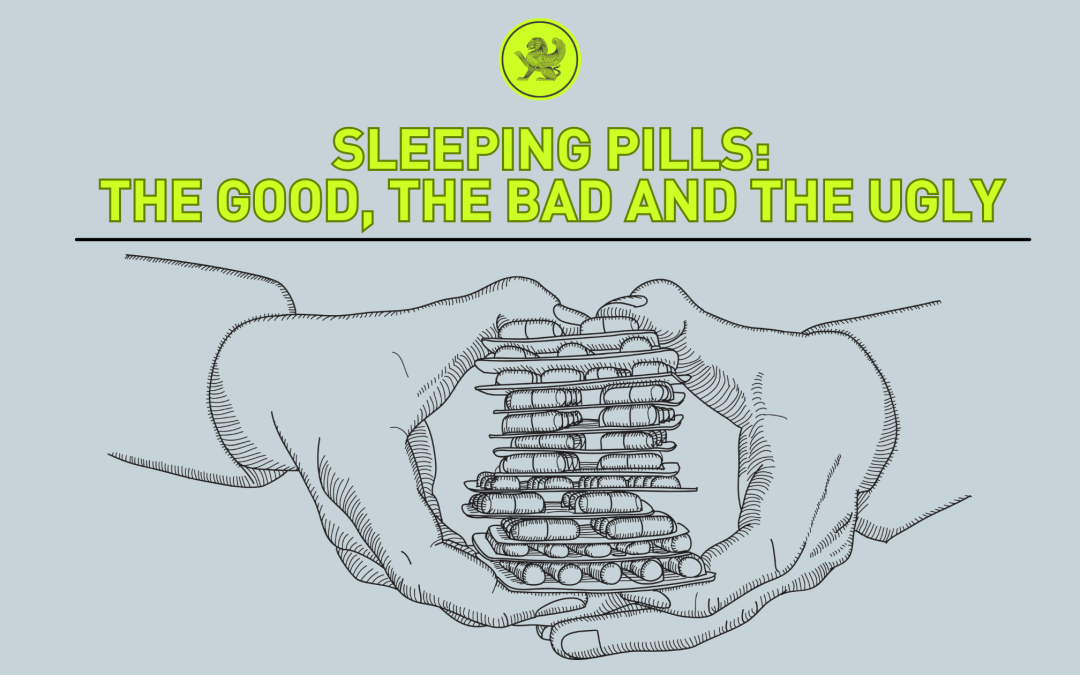Sleeping pills: the good, the bad, and the ugly
CREDITS
By Dr Melane van Zyl
Sleeping pills, also known as hypnotics or sedatives, are medications used to treat insomnia and other sleep disorders. Insomnia often accompanies depression. It is important to help patients sleep well in order to recover from depression. Your doctor should give you information about the sleeping pills you are taking. While they can be helpful for individuals struggling with sleep problems, it is essential to consider the pros and cons before using them.
Pros of Sleeping Pills:
1. Short-term relief for insomnia: Sleeping pills can provide temporary relief from insomnia, helping individuals fall asleep faster and stay asleep longer.
2. Improved sleep quality: For some people, sleeping pills can improve overall sleep quality, reducing nighttime awakenings and increasing total sleep time.
3. Reduced anxiety: Certain sleeping pills, particularly benzodiazepines, have anxiolytic (anti-anxiety) effects, which can help people with anxiety-related sleep problems.
4. Use in medical settings: Sleeping pills can be beneficial for patients who require sedation before medical procedures or surgeries.
5. Better daytime functioning: Improved sleep can lead to better daytime functioning, including increased alertness, focus, and mood.
Cons of Sleeping Pills:
1. Side effects: Sleeping pills can cause side effects such as dizziness, headache, daytime drowsiness, dry mouth, and gastrointestinal issues.
2. Dependency and addiction: Long-term use of some sleeping pills, particularly benzodiazepines, can lead to physical and psychological dependence or addiction.
3. Rebound insomnia: Discontinuing sleeping pills after prolonged use can result in rebound insomnia, which is a temporary worsening of sleep problems.
4. Tolerance: Over time, the body can develop a tolerance to sleeping pills, making them less effective and requiring higher doses for the same effect.
5. Interactions with other medications: Sleeping pills can interact with other medications, potentially causing adverse effects or reducing the effectiveness of other drugs.
6. Impaired cognitive and motor function: Some sleeping pills can impair cognitive and motor skills, increasing the risk of falls, accidents, and memory problems.
7. Masking underlying issues: Using sleeping pills to manage insomnia may mask underlying issues, such as sleep apnea, anxiety, or depression, that require separate treatment.
8. Not a long-term solution: Sleeping pills are typically intended for short-term use and do not address the root causes of sleep problems.
If you are concerned that you may be addicted to sleeping pills, here are some signs to look for:
1. You have a strong urge to take the sleeping pills, even if you don’t feel tired.
2. You require higher doses of sleeping pills to achieve the same level of effectiveness.
3. You continue taking sleeping pills even when they are no longer needed, or beyond the prescribed duration.
4. You experience withdrawal symptoms, such as insomnia, anxiety, and irritability, when you try to stop taking sleeping pills.
5. You use sleeping pills despite knowing that they are causing negative effects on your health or daily functioning.
6. You experience memory problems or have trouble concentrating.
7. You have trouble sleeping without sleeping pills.
8. You have a history of substance abuse or addiction.
If you are dependent on sleeping pills and want to stop taking them, it’s essential to do so under the guidance of a healthcare professional. Here are some steps that you may follow to get off sleeping pills:
1. Consult with a healthcare professional: Speak with your doctor or a sleep specialist who can help you create a personalized plan to stop taking sleeping pills safely. They can also suggest alternative treatment options to manage your insomnia.
2. Taper off gradually: Instead of stopping the medication abruptly, taper off the medication gradually. Your healthcare professional may recommend gradually reducing the dosage over several weeks or months, depending on your level of dependence.
3. Address underlying issues: If you are experiencing insomnia or other sleep-related issues, it’s essential to address the underlying causes. This may include lifestyle changes, such as improving sleep hygiene or addressing any underlying medical or psychological conditions.
4. Consider behavioural therapies: Cognitive-behavioural therapy for insomnia (CBT-I) is a proven effective treatment for insomnia. CBT-I can help you identify and address behaviours affecting your sleep and develop strategies to promote better sleep.
5. Practice good sleep hygiene: Establish healthy sleep habits by practicing good sleep hygiene. This includes setting a regular sleep schedule, creating a sleep-conducive environment, avoiding caffeine, and other stimulants before bedtime, and limiting screen time before bed.
It’s essential to remember that everyone’s journey to get off sleeping pills is different, and it may take time to develop new sleep habits. With the right support and a willingness to make changes, it is possible to get off sleeping pills and achieve restful, healthy sleep.
If insomnia remains a problem, there are options available that do not cause tolerance or dependence.

